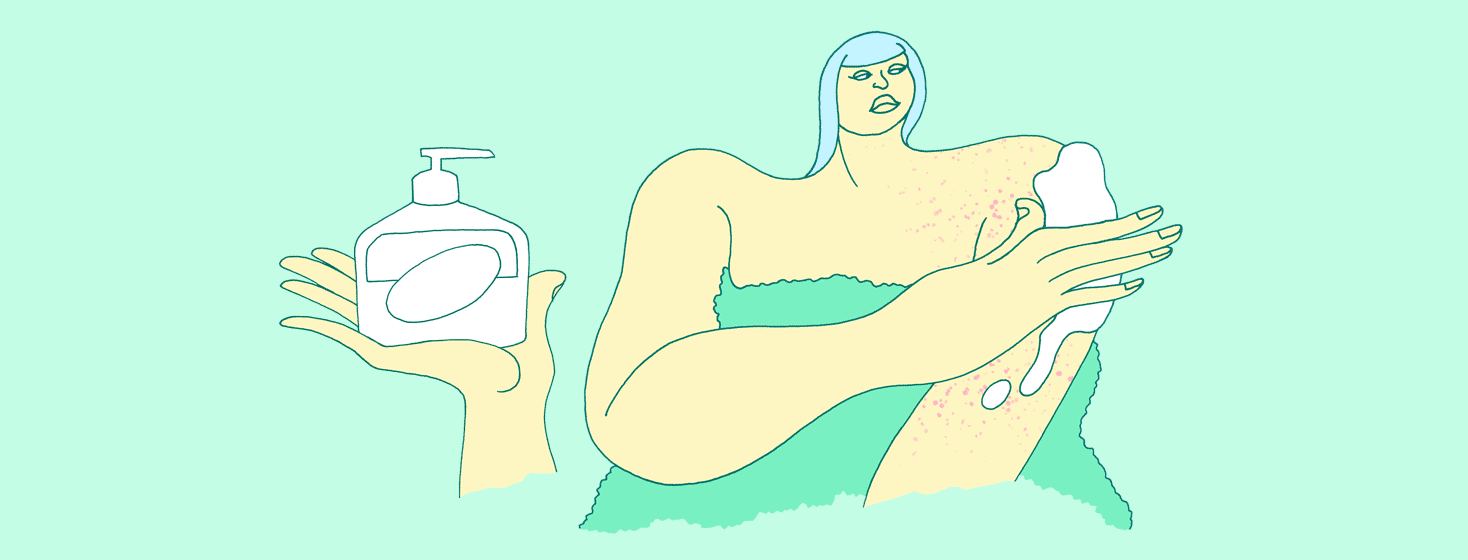Why Is Moisturizing So Important For Psoriasis Management?
In almost every article I read about psoriasis management, moisturizing seems to always be mentioned just past the headline. How often should we moisturize? What products should we use? How time-consuming and annoying a moisturizing routine can be - let alone sticking with it for eternity.
Oftentimes I think moisturizing is overlooked by those who live with it, probably because we know that psoriasis is so much more than just dry skin. Honestly, though, it brings us more perks than we might think.
Why is it important to moisturize?
So, why is it so important to moisturize so often? I decided to explore this a little. What I found helped me understand my skin better.
Well, it's simple. Regular moisturizing helps reduce itchiness. The drier skin is, the itchier it becomes. Moisturizing also helps plaques and scales fall off without damaging the skin too much and without too much pain.
Regular moisturizing can reduce the appearance of dry scales and involuntary scale flurry. Oh you know, when you take a jacket off and it looks like a snowstorm? This just happened to me at a lunch with friends last week. I was so embarrassed.
What product do we choose?
So now we understood better why moisturizing is important, the next question is what to use. There are probably thousands of various moisturizers all over the world. All of them promising results of varying degrees. They can make you look younger, they can penetrate x layers of skin and so the story goes.
I have only found two ranges that work for me, Child's Farm, and more recently, there are one or two Nivea products that help my psoriasis skin. I choose not to use oil as it does not have the same effect on me, and often leaves me itchier than before.
That said, it can take some serious trial and error to find out what's going to work for you. My advice would be to keep a journal of products and write your own personal skin review. Keep track of how it makes your skin feel, if you notice any increased itchiness or new flare. If you notice a new trigger, check out the product's ingredients and adjust from there.
A look at my own skincare routine
I try to take an Epsom salt bath at least once a week, and it really makes a big difference. Epsom salts might seem counterintuitive as they can sometimes dry the skin out. However, what they also do for me, is help loosen the dead skin that has built up on the plaques.
I add two cups to a hot bath and then allow it to cool a little before sliding in and soaking for at least 30 minutes. If I have any open spots, they do burn slightly, this passes quickly enough not to be too uncomfortable. Once I am out of the bath, I pat my skin dry and apply a layer of moisturizer.
I allow this to dry and then apply again and then go to sleep. Going to sleep makes sure that my monkey finger stays off my skin while the process is happening. The next morning when I wake up, it's like magic happened overnight. The skin comes off easily without causing a lot of irritation. This is also usually accompanied by a change of linen as a lot of the excess skin comes off during the night.
What does your moisturizing routine look like? What have you found helpful or hurtful?

Join the conversation